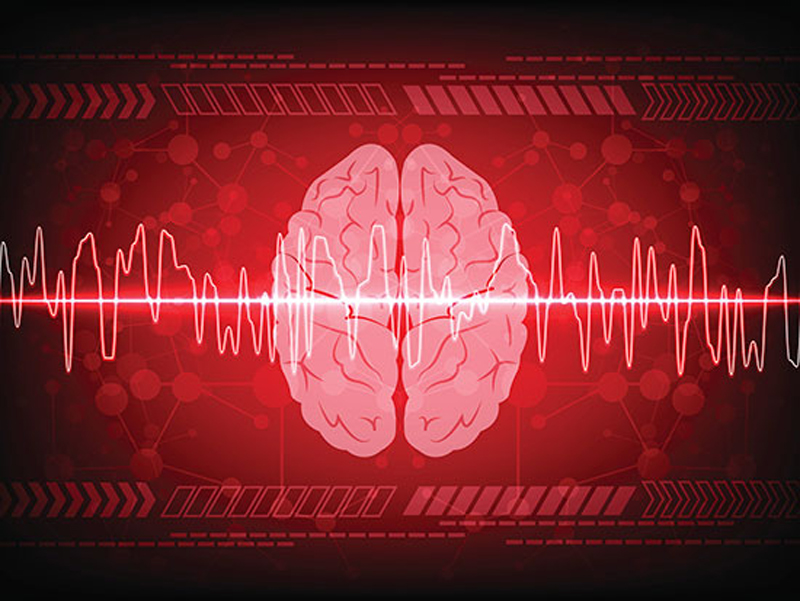

Neuralink, an Elon Musk-founded start-up aimed at developing wireless brain-machine interfaces, finds itself at the centre of unwelcome headlines this week.
A group that opposes medical testing on animals called the Physicians Committee for Responsible Medicine (PCRM) last week filed a state lawsuit and federal complaint with the US Department of Agriculture (USDA).
The complaint was centered against the University of California, Davis, which helped Neuralink conduct its brain computing research on primates.
The complaint alleges that UC Davis received more than $1.4m funding from Neuralink to carry out “invasive and deadly brain experiments conducted on 23 monkeys.”
In April 2021, Neuralink posted a video that showed a monkey playing a game of Pong using only signals from its mind.
Pager, a 9-year-old macaque monkey had two Neuralink devices implanted about six weeks before the video was shot, according to the video’s narrator.
The video shows the monkey first controlling the game using a joystick, and being rewarded with a banana smoothie delivered through a metal straw. Meanwhile the implant records the brain signals used to control the joystick.
When the scientific team disconnects the joystick, the monkey continues to play, but now the game of “MindPong”, as the company nicknamed it, is apparently controlled using its brain signals only.
Neuralink had previously showed a video of a pig called Gertrude (Gertie) with an implant that allowed her neural activity to be tracked as she looked for food.
The PCRM alleges that most of the animals used in the experiments had portions of their skulls removed to implant electrodes in their brains as part of Neuralink’s development of a “brain-machine interface.”
The complaint alleges Neuralink and UC Davis staff failed to provide dying monkeys with adequate veterinary care, used an unapproved substance known as “Bioglue” that killed monkeys by destroying portions of their brains, and failed to provide for the psychological well-being of monkeys assigned to the experiment.
“UC Davis may have handed over its publicly-funded facilities to a billionaire, but that doesn’t mean it can evade transparency requirements and violate federal animal welfare laws,” said Jeremy Beckham, MPA, MPH, research advocacy coordinator with the Physicians Committee.
“The documents reveal that monkeys had their brains mutilated in shoddy experiments and were left to suffer and die,” said Beckham. “It’s no mystery why Elon Musk and the university want to keep photos and videos of this horrific abuse hidden from the public.”
Elon Musk’s firm however has hit back at the complaint, and denied that any of the animals involved in its research experienced extreme suffering as alleged by PCRM.
“Animals at Neuralink are respected and honored by our team,” the firm tweeted, before expanding upon this in a blog post.
“Recent articles have raised questions around Neuralink’s use of research animals at the University of California, Davis Primate Center,” Neuralink wrote. “It is important to note that these accusations come from people who oppose any use of animals in research. Currently, all novel medical devices and treatments must be tested in animals before they can be ethically trialed in humans. Neuralink is not unique in this regard.”
Neuralink said that it had begun its experiments using animal cadavers and deceased animals who had been humanely euthanised for medical reasons due to a veterinary decision.
This allowed Neuralink to “develop our novel surgical and robot procedures, establishing safer protocols for subsequent survival surgeries.”
“Survival studies then allowed us to test the function of different generations of implanted devices as we refined them towards human use,” it said. “The use of every animal was extensively planned and considered to balance scientific discovery with the ethical use of animals.”
It added that animal well being is a central tenet of Neuralink’s philosophy, and it developed “company norms around strong animal welfare advocacy by ensuring all employees have the opportunity to meet our animals and spend time with them alongside a trained animal care specialist.”
Neuralink said it engaged the local United States Department of Agriculture (USDA) inspectors to ensure that we would meet and exceed all requirements of the Animal Welfare Act (AWA).
It has also received accreditation by the Association for the Assessment and Accreditation of Laboratory Animal Care (AAALAC) International.
“We also look forward to a day where animals are no longer necessary for medical research,” said Neuralink. “Yet our society currently relies on medical breakthroughs to cure diseases, prevent the spread of viruses, and create technology that can change how people are able to interact with the world.”
It should be noted that Neuralink’s end goal is not just to stream music directly into a person’s brain, bypassing the need for earphones (and even ears) altogether, as touted by Elon Musk in July 2020.
Rather there are medical goals, as the creation of a brain interface may allow doctors to alleviate symptoms of chronic medical and neurological conditions in human beings.
Musk previously suggested that the Neuralink chip could also help to cure depression and addiction.
Portuguese power operator attributes widespread outages across Iberian peninsula to extreme temperature variations
Judge sets 2 May date for Google and US Justice Department hearing to consider remedies…
Spotify reportedly plans price rises across markets outside the US this summer as it seeks…
Nigerian court upholds fine by competition and consumer protection agency over collecting user information without…
Sales and market share of pure EVs regain their edge over plug-in hybrids amidst falling…
London-based food delivery company Deliveroo says DoorDash made buyout offer at £1.80 per share as…